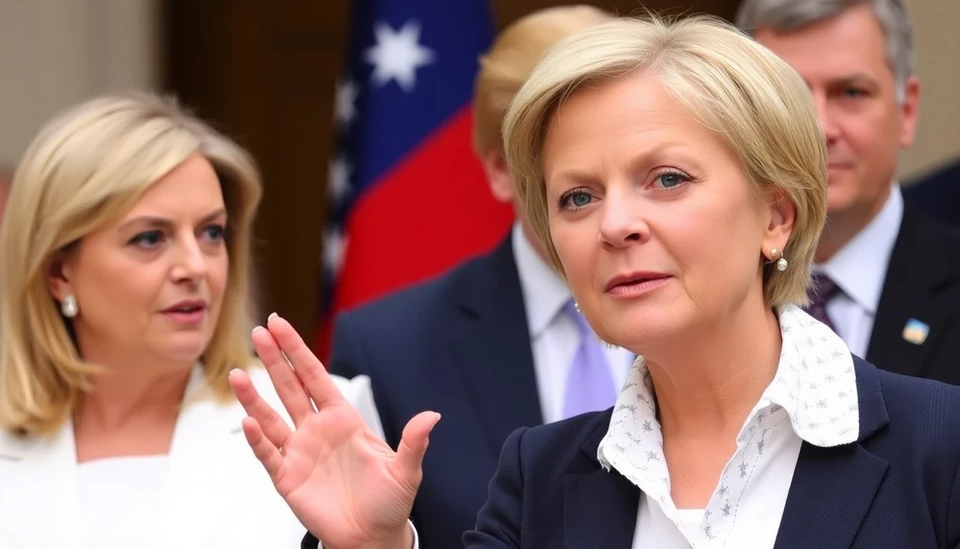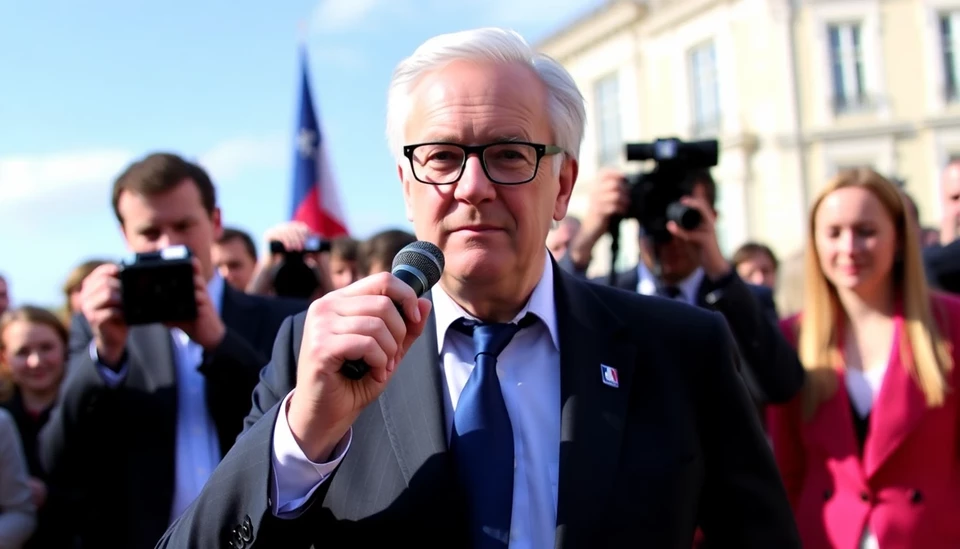
In a striking move that showcases the evolving landscape of French politics, Marine Le Pen’s National Rally party is ramping up its budgetary demands, calling for an increase in government spending while simultaneously leveraging its influence in the parliamentary process. This development comes at a time when the political climate is marked by negotiations and shifting alliances as key figures, including former Brexit negotiator Michel Barnier, begin to reposition themselves.
The National Rally, traditionally known for its hardline stances, is attempting to adopt a more mainstream appeal by advocating for enhanced social spending. This shift aligns with their ongoing strategy to broaden their voter base, especially among those feeling the economic strain. Le Pen's party is insisting that any budgetary discussions should prioritize social welfare over austerity measures, arguing that the current economic environment demands immediate government intervention to support struggling households.
Barnier, who has been a prominent figure in the political arena, appears to be softening his previously rigid positions. His willingness to engage in dialogue and negotiate with Le Pen’s party raises questions about his future political strategies and the potential for collaboration with factions that were once seen as adversaries. This newfound flexibility indicates a potential realignment in the French political landscape, as parties seek to navigate an increasingly complex situation ahead of the upcoming elections.
The heightened budget demands from Le Pen's party are likely to set the stage for intense parliamentary negotiations. Observers suggest that this framework could influence everything from fiscal policy decisions to broader legislative initiatives. If successful, the National Rally could further entrench its role in shaping governmental priorities.
As this political drama unfolds, voters are left to ponder the implications of these changes. Many are looking for stability and assurance in the economic policies that will guide France through its current challenges. The moves by Le Pen's party to advocate for increased social spending may resonate with those who prioritize immediate support over long-term fiscal conservatism.
With the backdrop of rising inflation and economic uncertainty, all eyes will be on the negotiations in Parliament. As various factions position themselves for influence, the outcomes of these discussions may very well redefine the political map of France in the years to come.
The political landscape is undeniably in flux, and the coming months are likely to be crucial in determining the direction of governance in France. Le Pen's increasing assertiveness could signify a transformation in how right-wing populism is approached in French politics, suggesting that the dynamics of power are shifting in favor of those who once held a more oppositional stance.
As we move closer to critical elections, the interplay between Le Pen’s demands and Barnier’s softened stance will be pivotal in shaping public policy and electoral outcomes. The evolving relationship between these parties is set to captivate the populace, igniting debates on the future of French governance.
Stay tuned as we continue to monitor this developing story and its potential repercussions on both the political mechanisms and the everyday lives of the French people.
#LePen #NationalRally #FrenchPolitics #BudgetDemands #Barnier #PoliticalAlliance #EconomicPolicy #SocialWelfare #ParliamentaryNegotiations #2024Elections
Author: Rachel Greene

